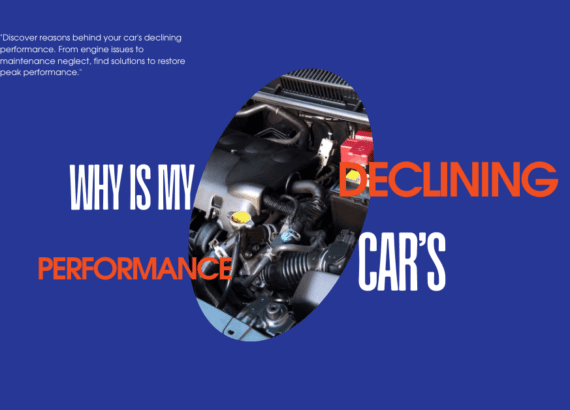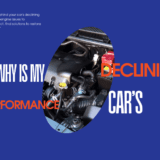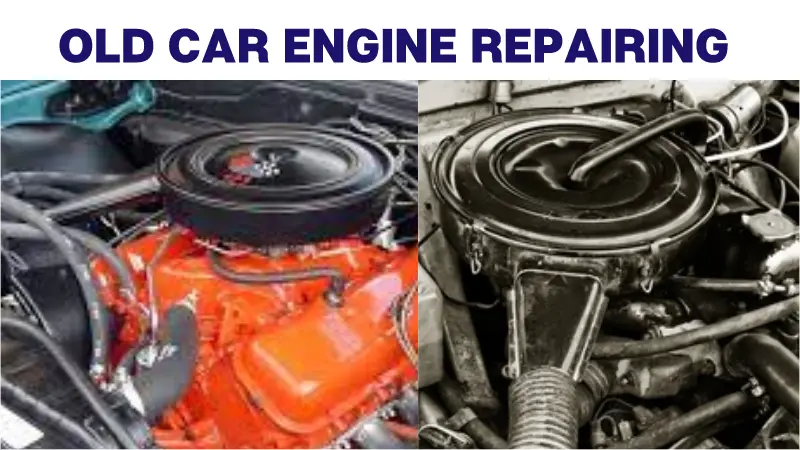Signs You Need to Buy New Diesel Truck Tires

As someone who has navigated the perils of roadway travel in a diesel truck. I’ve come to realize the importance of good tires on my vehicle. It’s not just about the drive; it’s about ensuring your truck remains in tip-top shape, safeguarding against the scariest scenario a motorist can face – a blowout. A blowout often results from worn or torn tires and can lead to a sudden loss of inflation pressure. Imagine the chaos of trying to maintain control of a semi-hauling trailer if one of the front tires gives out. It’s a situation that spells risk and accidents.
The telltale signs that your diesel truck tires need to be replaced are often right before our eyes, yet many, including myself in the past, are guilty of delaying the buying decision. It’s essential to watch carefully for these indicators. Wear on just the four tires where only small patches of rubber actually contact the road is a clear sign. If you find yourself needing to tow your vehicle more often than you’d like, consider this a red flag. Before any of these problems escalate and you experience a blowout, it’s critical to take action.
RDI Power, conveniently located on Donato Way, is a reliable shop I’ve had personal experience with. They can check your tires and advise if new tires are necessary. Don’t wait until you’re calling a tow truck; proactively contact them to schedule an appointment. Ensuring your tries are in good repair massively reduces the stake of accidents due to tire-related problems. Let’s not risk delaying buying; the safety of everyone on the road could suddenly be in your hands the moment your tires decide to drive over their last mile. Nipping potential problems in the bud today can prevent a world of hassle tomorrow.
Types of Diesel Tires
In my experience dealing with diesel vehicles, choosing the right tires is crucial not just for performance. But for safety and efficiency. Here’s how different tires match up to various diesel-powered machines:
- Diesel pickup trucks and light trucks benefit immensely from touring truck tires and all-terrain tires. These vehicles often carry heavier loads and need tires that can handle the extra weight and provide stability, whether on the highway or off-road.
- For those driving passenger vehicles from prestigious brands like Mercedes-Benz, BMW, and Audi, performance tires are recommended. These tires are designed for vehicles with higher speed ratings and extra power, enhancing grip and drive quality at higher speeds.
- Vehicles with a higher payload capacity, such as crossovers and SUVs, require durable tires that can withstand the demands of carrying extra weight. All-season tires and mud and snow tires are often the go-to options for these vehicles. Offering a balance between performance in various weather conditions and the ability to manage heavier loads.
- Tire manufacturers have come up with an extensive range of types of tires to cater to every need. Highway tires are commonly found on diesel vehicles used for long-distance travel, providing comfort and fuel efficiency.
- For the adventurers who take their diesel vehicles off the beaten path, off-road tires are designed to tackle tough terrain. While winter tires are indispensable for maintaining traction and safety in snow and ice.
- It’s not just about the type; the various types of tread designs also play a pivotal role. Tread designs are tailored for different driving conditions – from the slickness of rain-soaked highways to the unpredictable challenges of muddy trails.
Signs You Need New Diesel Truck Tires
When you’re behind the wheel of a diesel truck, you’re commanding a powerhouse of torque and reliability. However, even the sturdiest trucks are only as good as their contact with the road – their tires. In my years of driving and looking after diesel trucks, I’ve come to understand several key signs that indicate when it’s time to invest in new tires. Ignoring these can not only diminish your truck’s performance but also put you at risk of being stranded due to tire failure. Let me guide you through the indicators that your diesel truck might need new tires, using personal insights and the essential keywords provided.
Wear Bar Showing

The wear bars on truck tires are not just a part of the tire’s design; they are a critical safety feature. These small bands of rubber sit within the treads and become visible as the tread height reduces to a dangerously low level. The moment you start to get a glimpse of these wear bars. It’s a tell-tale sign that the tires are damaged and in hurry to be replaced. Manufactured to reveal themselves, they take action by warning the driver of potential tire failure and the risk of a blowout along with increased stopping distances. Always be mindful to inspect your tires regularly.
Uneven Wear
Uneven wear on your tires can indicate several problems. If the tire wear is concentrated in the middle but not on the both sides, it often points to air pressure issues – specifically if the air pressure is too high. Conversely, wear on the outside edges suggests the tire pressure is too low. Should you notice tire wear more on one side than the other, or if the tire appears scalloped. An alignment problem with the wheels may be the culprit. A small adjustment in alignment or suspension could prevent further damage.
Bald Tires
Nothing shouts the need for change louder than bald tires. Driving a diesel truck with bald tires is unsafe; with little to no tread, they pose a significant problem. Not only is the issue easy to spot, but the repercussions include losing control, greater risk of blowouts, increased stopping distances, and a higher chance of hydroplaning. When you notice these issues, it’s crucial to fix them immediately for your own health and safety on the road.
Your Truck Shakes
If your truck starts to shake at low speeds or between 55 to 70 mph, don’t dismiss it. It might not be just the road conditions; a separated tire could be the cause. Experiencing vibrations at a certain speed, especially around 55 mph, suggests it’s time to check the tires for balancing issues.
Damaged Sidewalls
Damaged Sidewalls need to be replaced ASAP. Over time, wear down from mileage and the elements will take its toll. When you assess your tires and notice bulges or cuts. It’s often a sign of improper alignment, which should be corrected to avoid the end result – a tire blowout.
Tires Always Going Flat
There’s nothing more tedious than tires that deflate repeatedly. If you find yourself pumping more air into your tires only to see them go flat every few days, it could point to issues like Dry rot or a misplaced nail in the tire.
Dry Rot (CRACKS)
As time passes, the rubber of your tires can begin dry rotting, particularly if you park in the sun frequently. Dry rot manifests as cracks in the tire, and once you notice them. It’s critical to replace the tires immediately to avoid a blowout.
Truck Is Always Shaking
A shake in your diesel truck, regardless of road conditions, signifies there’s a problem. Even on a smooth stretch of roadway, experiencing vibrations means it’s time to explore the tires for shaking problems – often a result of improper alignment or balance issues that can affect the interior feel and control.
Tires Going Flat
When you consistently find your truck in the driveway with less air in the tires than you left it, it’s a clear sign that your tires are regularly deflating and you need to explore getting new ones. Driving on unreliable and unsafe tires, especially when traveling long distances, is a hazard you want to avoid at all costs.
Cracks Are Forming
Over periods, your tires will naturally develop cracks. This sign that your diesel truck tires are aging means sooner or later. These small cracks will only get bigger with time. Don’t wait for them to become severe; change them the moment these cracks start appearing to ensure your truck continues to perform at its best.
While diving into these signs, it’s apparent how crucial it is to not only prevent issues but also keep a close attention on your truck to avoid being stranded due to tire failures. Predicting, rather than reacting to, the moment to replace your tires can save you from the inconvenience of hitting a nail, experiencing flats, or worse, blowouts. Taking care of worn tires, keeping an eye on alignment, suspension, and steering, and addressing dry rot with prompt attention ensures that your truck remains safe on the road at all times.
Why New Diesel Truck Tires Are Important
When it comes to enhancing your driving experience. The importance of investing in new tires for your diesel truck cannot be overstated. The ride quality, safety, and overall performance of your vehicle are heavily dependent on the condition and type of tires it rides on. From my journey and expertise. I’ve come to realize that truck owners often face an overwhelming array of options when they start to turn their attention to shopping for replacements.
There are different sizes, providers, and types specifically dedicated to diesel trucks. Making it crucial to sort through these choices wisely. Not only do these tires need to accommodate the unique power and weight distribution of diesel engines. But they also must align with the owner’s driving preferences and requirements.
It’s not uncommon for repair professionals to recommend a fresh set of tires to restore or even enhance your truck’s performance and safety features. The key here is starting the shopping process with a clear understanding of your vehicle’s needs and how different options can dramatically improve your driving experience.
Conclusion
In sum, recognizing the need for new diesel truck tires is paramount for not only maintaining optimal performance but ensuring road safety. My personal journey and expertise with diesel vehicles have underscored the essence of being attuned to the condition of my truck’s tires. Where neglecting signs of wear or damage could lead to perilous outcomes such as blowouts and loss of control.
The detailed exploration of different tire types suitable for various diesel vehicles. From pickup trucks to passenger vehicles, affirms that selecting the right tires influences not just a smoother drive but a safer journey. Whether facing uneven terrains, varying weather conditions, or simply the daily commute, the right set of tires stands as the unspoken hero in safeguarding our passage.
Hence, proactive observation for signs of wear, alongside a timely response in replacing tires, isn’t just beneficial—it’s crucial. With diligent care and the right choices, we can ensure that our diesel trucks continue to serve us faithfully on every road we travel.
FAQs
How long do tires last on a diesel truck?
Your truck needs good treads so it can drive properly. Often, tire treads wear out after covering approximately 75 000 miles. Additionally, the terrain you drive on may determine how fast your tires will wear. Thus, you need to inspect your truck tires’ treads if they have been in use for several years.
How do I know if my truck tires are bad?
You’ll know if the tires are degraded because they will feel lumpy and make the car shake. Whether the tires are flat or not, look for cracks on the sides of the tires. Flex them if you can while looking for cracks. If they’re flat, the cracks will first appear at the bottom, where the sidewall is crushed.
How often do trucks need new tires?
Experts recommend replacing your tires in sets because sets with uneven treads can cause your truck to ride more roughly. You should never keep tires on your vehicle for longer than six years, though the average lifespan of a semi-truck tire is anywhere from three to six years if they remain in good condition.
What is high mileage for a diesel truck?
As a general rule of thumb, it may not be wise to purchase a used diesel truck with over 500,000 miles on it. If you want a vehicle to use for quite a few years or you plan on using it for quite a few miles, it may be better to opt for a used truck with under 250,000 miles.











